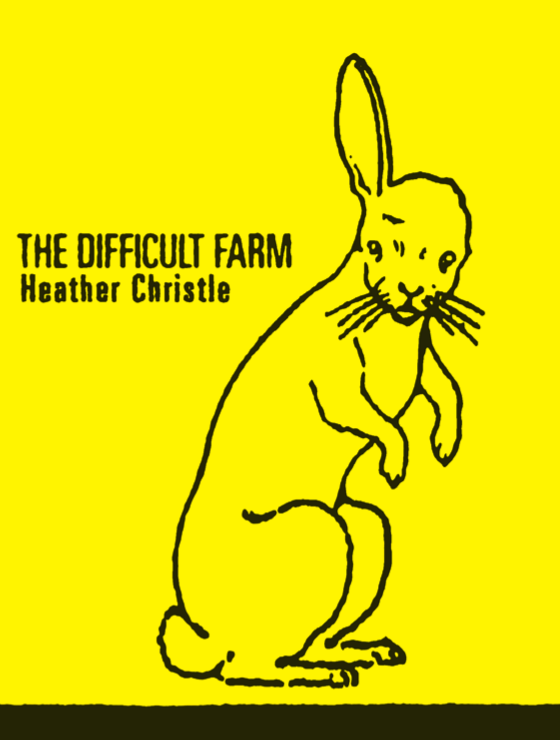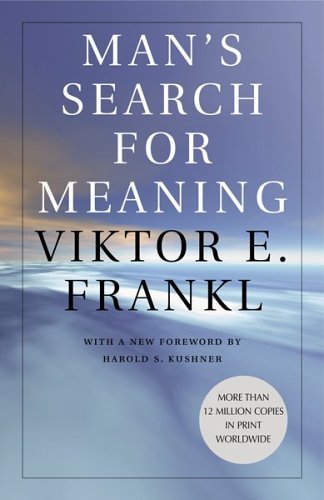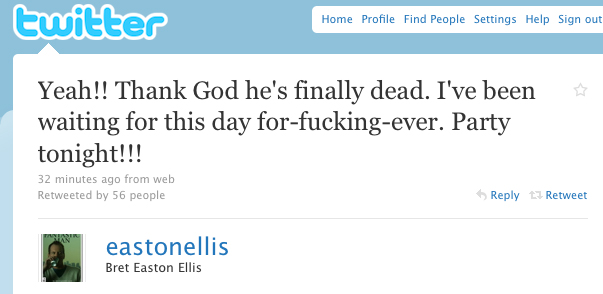
It’s Career Day at Gawker. Today we learn about how to be a “literary manboy.” I was happily/worriedly checking off boxes when I realized I’m still a good nine years below the beginning of the designated age range (36-45). Also, the Gawker piece is actually a response to this Times profile of a freelance journalist named John Bowe. The piece is called “A Bachelor’s Effort to Understand Love,” which is a feat I have never even attempted, so uh–bullet dodged? Also, the Gawker piece ends with this priceless rant by the great Moe Tkacik-
I also asked Moe Tkacik, a former Jezebel and Gawker editor, what she thought. Her analysis was that men are “just incredibly late, and until then loathe, to acknowledge that there are rewards and advantages to companionship/fidelity/love that aren’t purely romantic/sexual/possibly, on some largely delusional level ‘spiritual.’ So they conflate ‘that time when I allowed myself to be vulnerable because I was in fucking Saipan WRITING A BOOK ABOUT MODERN DAY SLAVERY OF ALL LIFE AFFIRMING THINGS’ or ‘that time when I was somehow more emotionally available — possibly I suppose owing in part to the fact that I was fifteen years old?’ with ‘the only real time I fell in love,’ the transcendence of which, until it is somehow surpassed — not super likely to happen at the next Housing Works party btw — stands as the unimpeachable order from within themselves to neglect all other minor romances.”
A+, Moe, though for the record, wonderful things can and do happen at Housing Works parties. Happy Friday, everyone!
Live Giant! Heather Christle Reads from Atlanta
The live reading is over, but we may post archival footage later.. thanks to all who tuned in.

You can get Heather’s first book of poems, The Difficult Farm, from Octopus Books and all orders from now to midnight tonight will also receive a copy of Tuned Droves by Eric Baus and Undersleep by Julie Doxsee for free!.
Thanks to everybody who tuned in. Next month we’ll have Dorothea Lasky, author of AWE and the forthcoming Black Life, both from Wave Books, February 24th at 9 PM. Mark it!
A Six Minute Trip, But It Feels Like Eternity: Sundance Film Festival, a review.
 11 degrees and snowing. The weather and its children–snow, slush, wet shoes, stung faces–frames Sundance. As much as I’d like to say I acclimated, I didn’t. But the weather does amplify a sense of frenzy & camaraderie already present for the sake of the namesake: movies. People go to see movies, buy movies, sell movies–share movies and share themselves. And, yes: if you don’t have passes, know that you should wake up at 6am or earlier every morning to stand in line for hours at the box office, just to find out that you can only get tickets to 2 (max) of the 5-8 movies you wanted to see. There was a guy, first in line, who camped out at the box office for the night only to be beaten to the punch for tickets by someone who paid faster (cash). Devotion.
11 degrees and snowing. The weather and its children–snow, slush, wet shoes, stung faces–frames Sundance. As much as I’d like to say I acclimated, I didn’t. But the weather does amplify a sense of frenzy & camaraderie already present for the sake of the namesake: movies. People go to see movies, buy movies, sell movies–share movies and share themselves. And, yes: if you don’t have passes, know that you should wake up at 6am or earlier every morning to stand in line for hours at the box office, just to find out that you can only get tickets to 2 (max) of the 5-8 movies you wanted to see. There was a guy, first in line, who camped out at the box office for the night only to be beaten to the punch for tickets by someone who paid faster (cash). Devotion.
So there is a madness to the festival. It is worth it. I met filmmakers–actors, writers, directors, producers–I highly respect, and had leisurely conversations with them. All were warm, all were happy to be sharing. I saw six films in four days and a night, three of them great. It was thrilling.
The title above comes from a line in Enter The Void–one of the characters is describing a DMT trip. I stayed away from the DMT, but the festival, all gathered & gleaned, is a very specific and inspiring drug and gauntlet.
Okay. Here’s what I thought of the films:
Dear Memoirist, Do / Do Not Get Bent, Love Everybody


Over at The Daily Beast, Taylor Antrim is complaining about memoirs, in particular Alex Lemon’s Happy and Nick Flynn’s The Ticking is the Bomb. Over at The Rumpus, Stephen Elliott has responded with a defense of the memoir. Which you should go check out. Meanwhile, I’m going to harp on a point that neither Antrim nor Elliott raised (though Elliott came awfully close).
Antrim’s essay is mostly a re-tread of fairly (or extensively) well-mapped territory, but his charmingly wrong-headed thesis actually succeeds in opening up an interesting discussion, albeit one he doesn’t ever get around to having. It’s right there in his piece’s headline- “Why Some Memoirs Are Better As Fiction.” First of all, what he means to say is that “some memoirs would be better as fiction,” but stick a pin in that and let’s move on.
Antrim unaccountably assumes that the writer sat down and chose between these and only these two mediums: the novel and the memoir. If you don’t accept this conceit, then his entire piece makes no sense. I would, therefore, like to point out to Antrim, that both Alex Lemon and Nick Flynn (despite the latter’s previous success as a memoirist) are poets by trade, and that their decision to write memoir has less to do with any kind of turning-away from fiction (which was probably never of significant interest to them anyway) than it does with the general sustained interest in personal nonfiction narratives across the board, and the kinds of opportunities that shift might afford to an early- or mid-career writer with a decent reputation and public profile, but a primary vocation that nobody is willing to pay them to practice (though they may yet be paid handsomely to teach other people to practice it, but let’s stick a pin in that, too).
Flynn and Lemon are only two of the latest in a burgeoning tradition of prose memoirs penned by poets, one which in recent years has included Maggie Nelson’s Jane, Sarah Manguso’s Two Kinds of Decay, and Katy Lederer’s Poker Face: A Girlhood Among Gamblers, and so on. Flynn’s own massively successful first memoir, Another Bullshit Night in Suck City, might have been the catalyst for this current wave. (Not to suggest that the poet-memoir is a new phenomenon, only that this is its newest iteration.) Many poets already write what can fairly be called autobiographical poetry, and so it only makes sense that, with Flynn’s first prose book as the example, other people got the idea that they could funnel that same poetry-energy into a medium that would command more rather than less critical attention and financial reward. This is not to say whether any of the particular books I’ve named are good (or bad–I’ve not read them), or what this trends means with concern to poetry and/or literature in general, but it seems to me that for the first time in at least a generation, contemporary poets are surveying a field that is expanding rather than contracting. Bully for them.
And just to end where we started–with Antrim–a large part of his complaint is that the memoirs in question may be meditative or ruminative, and densely packed with arresting prose and striking images, but they are light on plot, story, or narrative arc. Which is why he thinks he is describing failed novels. He seems to not realize that he may actually be describing successful poems.
Stories for the searchers
 Ryan Boudinot has a new project. It’s called Found and Lost, and it’s stories distributed to readers through geocaches. Here’s a description of the stories:
Ryan Boudinot has a new project. It’s called Found and Lost, and it’s stories distributed to readers through geocaches. Here’s a description of the stories:
“Found and Lost” is a series of interlinked short stories. Each story focuses on a main character who, in the course of the story, finds something and loses something else. The stories are set in various settings and time periods. The stories are connected to one another like links in a chain. For instance, Betty finds a cell phone and loses a framed butterfly. In another story, Juan finds the framed butterfly and loses his wallet. In another story, a man finds Juan’s wallet and loses his glass eye. The stories are linked in a circle, so that the “last” story involves someone who loses something that the “first” person finds.
Ryan has always approached technology in interesting ways—both in his writing and in the way he gets his writing to people. I like this idea a lot. I’m in favor of people giving work away, but I like that Ryan has made a challenge out of it.
Do any of you do this? This geocaching thing? Would you work for a good story? Would you search for one, given the chance?
SALINGER DEAD
Sad news. J.D. Salinger has died. Feel free to speculate on the obvious (and I don’t mean cause of death)…
REMINDER: 9 PM Tonight! (Eastern) Live Giant #1 Heather Christle
Don’t forget to come back right here tonight for the first monthly Live Giants reading with the radical Heather Christle, who will grace us with something else. To watch the reading, tonight you’ll find a post at the top of the site around five minutes till 9:00 PM (Eastern, so 6:00 PM on the west coast and you can do the other math). You’ll be able to watch it on the site, or follow a link so you can chat and ask questions or otherwise type at Heather in chatforum style. We’ll kick off at 9 Eastern sharp! Her cat Hastings will be there. Hope you will too.
Brad Green has selected Stephen Pemberton as the winner of Molly Gaudry’s We Take Me Apart, for his entry to the relate-food-to-childhood-n-stuff contest:
Orange roughy. My parents crammed that shit into my mouth as if they had some kind of bet between the two of them.
Stephen, please send word of your homestead and the book will be along its way!



